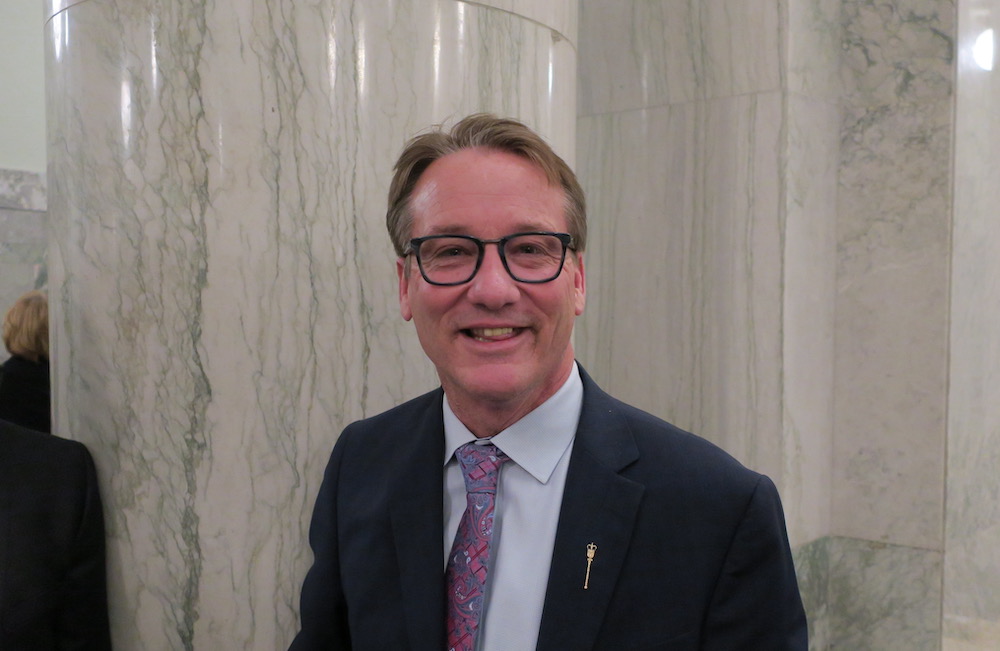Rebel conservative Drew Barnes, a former United Conservative exiled from the party’s caucus who nowadays sits as the Independent MLA for Cypress Medicine Hat, has floated the idea of forming a new conservative party that would run candidates only in rural Alberta.
After all, Barnes told Global News for a story published yesterday, under Premier Jason Kenney, the United Conservative Party “has turned away from the rural values and policies that propelled the UCP to victory in 2019.”
The notion of a formal rural-urban rift in conservative ranks is bound to please some Alberta NDP supporters on the enticing theory it could split the conservative vote enough to again create the conditions to elect an NDP government, as happened in the days of the Wildrose Party, but this time keep it in power for more than a single term.
That could happen, one supposes, if all the planets lined up just right, but it’s surely not what Barnes has in mind, nor is it the way such a split would necessarily play out.
Barnes proposes running candidates for his new party only in the 41 ridings outside Edmonton, which leans NDP, and Calgary.
In rural Alberta, it is true, it could turn out to be a real threat to Premier Jason Kenney’s increasingly ironically named United Conservative Party.
Barnes told Global’s reporter that not running candidates in the province’s major metropolises would ensure the new party would never abandon its rural principles to chase urban voters, as he now accuses Kenney of doing.
But that’s not the whole story, if it’s even part of it. Barnes, a successful Medicine Hat realtor before his political career, occupies the sovereignist far right of the UCP, but he’s shrewd enough to know a party advocating his ideas is unlikely to win a majority in Alberta.
So his dream scenario, surely, is that by not competing for the conservative vote in Calgary, a situation might emerge in which the Rural Rump, or whatever the new party is eventually named, would win a few more seats in Alberta’s 87-seat legislature than whatever is left of the UCP, but that the two of them between them would have enough to form a coalition to “save” Alberta from the NDP.
You can see how that might go, can’t you? Not to mention who would benefit the most from such an outcome.
Things are unlikely to unfold quite that way, thankfully, but it could happen. And then we would have a real tyranny of the minority thrust upon us in this province.
Barnes was first elected as a Wildrose MLA in 2012 and re-elected as a Wildroser in 2015, after which he enthusiastically supported the Wildrose merger with the Progressive Conservative Party.
In 2019, he was elected as a UCP MLA, but couldn’t keep himself from acting like the proverbial loose cannon on the governing party’s deck. Some said he was bitter at not getting a cabinet post. Others just thought he was inclined that way. Whatever the reason, he and Central Peace-Notley MLA Todd Loewen were turfed out of the UCP Caucus in May for undermining Premier Kenney, freeing him to get up to considerably more mischief.
“I was ejected from the caucus for just voicing the opinions of what my constituents were saying,” is the way Barnes spins his banishment.
He says he’s prepared a discussion paper on his idea, but won’t be releasing it to the media or public until Oct. 20, a couple of days after Kenney’s constitutionally meaningless anti-equalization referendum on the 18th.
Barnes, a former member of Kenney’s “Fair Deal” panel, used to float the idea of a referendum, is naturally an enthusiastic supporter of a Yes vote.
Since there is a spontaneous campaign among the premier’s many opponents to use a No vote as an informal referendum on Kenney himself, such a vote probably won’t bother Barnes that much. Either way, he can spin the outcome to bruise Kenney a little more.
It must be noted that it was not rural values and policies, as Barnes claims, that propelled the UCP to power in 2019.
On the contrary, the principal reasons were Kenney’s deceptive but clever campaign to blame the economic fallout from low international oil prices on the NDP and the belief by many voters that the UCP, despite its new name, was really a continuation of the Alberta PCs that traced their history back to the election of Peter Lougheed’s government in 1971.
The UCP turned out to deliver, in fact, something very different indeed from Lougheed’s progressive conservative rule.
So there is some truth, at least, to Barnes’s observation that “the UCP was a great idea on paper that has not worked out in practice.”




